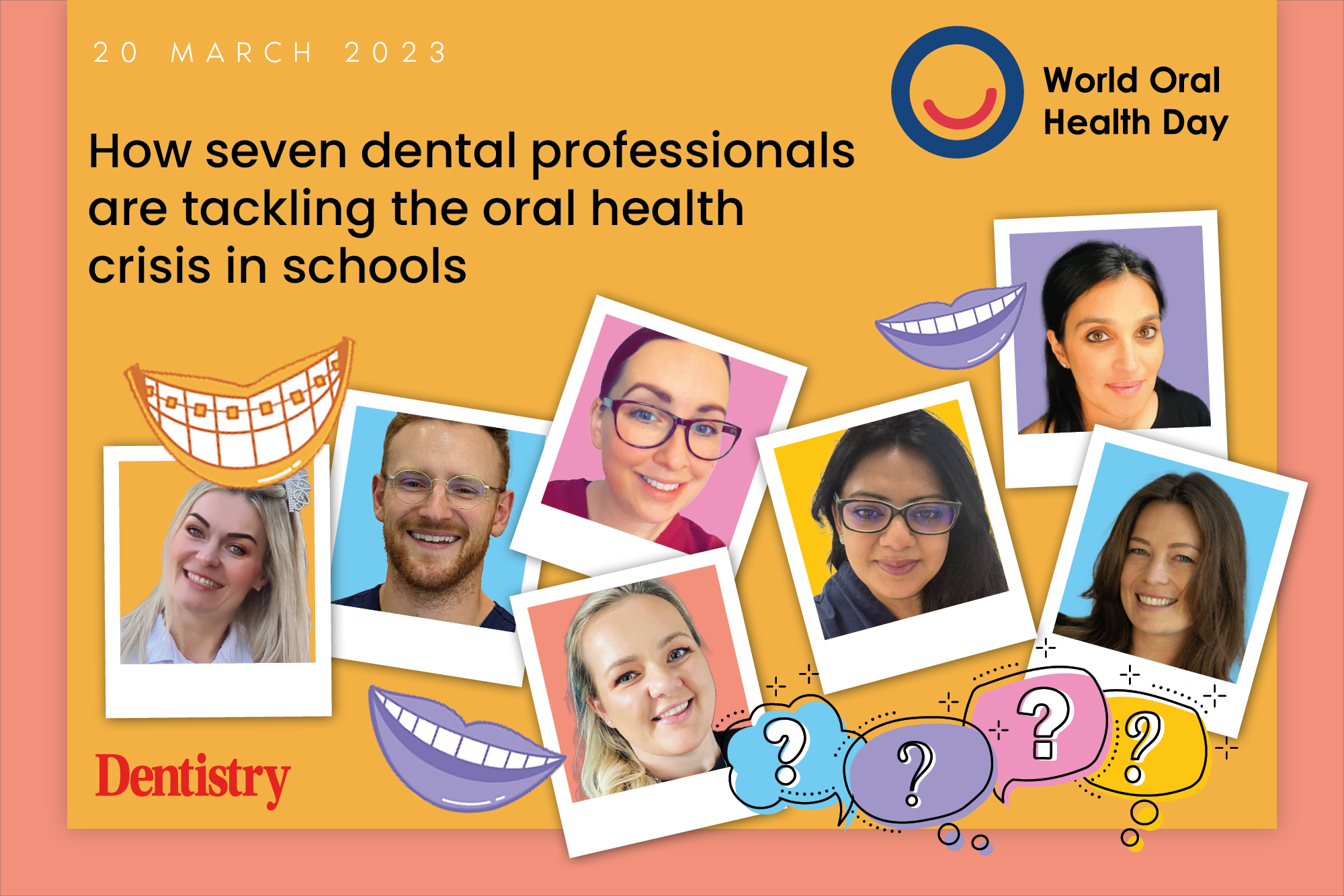
As 20 March marks World Oral Health Day, seven dental professionals discuss how they are actively helping to tackle the oral health crisis in schools and why this support to children is essential.
Brandon Tiller
Hello! I’m Brandon, a dentist based in south west London. I’ve had the privilege of visiting local schools and nurseries to give presentations on looking after your teeth.
First and foremost, it’s great that the government has included education on dental health in the curriculum.
In 2017, Public Health England published data that showed a quarter of five-year-old children had untreated tooth decay, with tooth decay also being the leading cause of hospital admissions for children aged five to nine.
This highlights how important dental health education is.
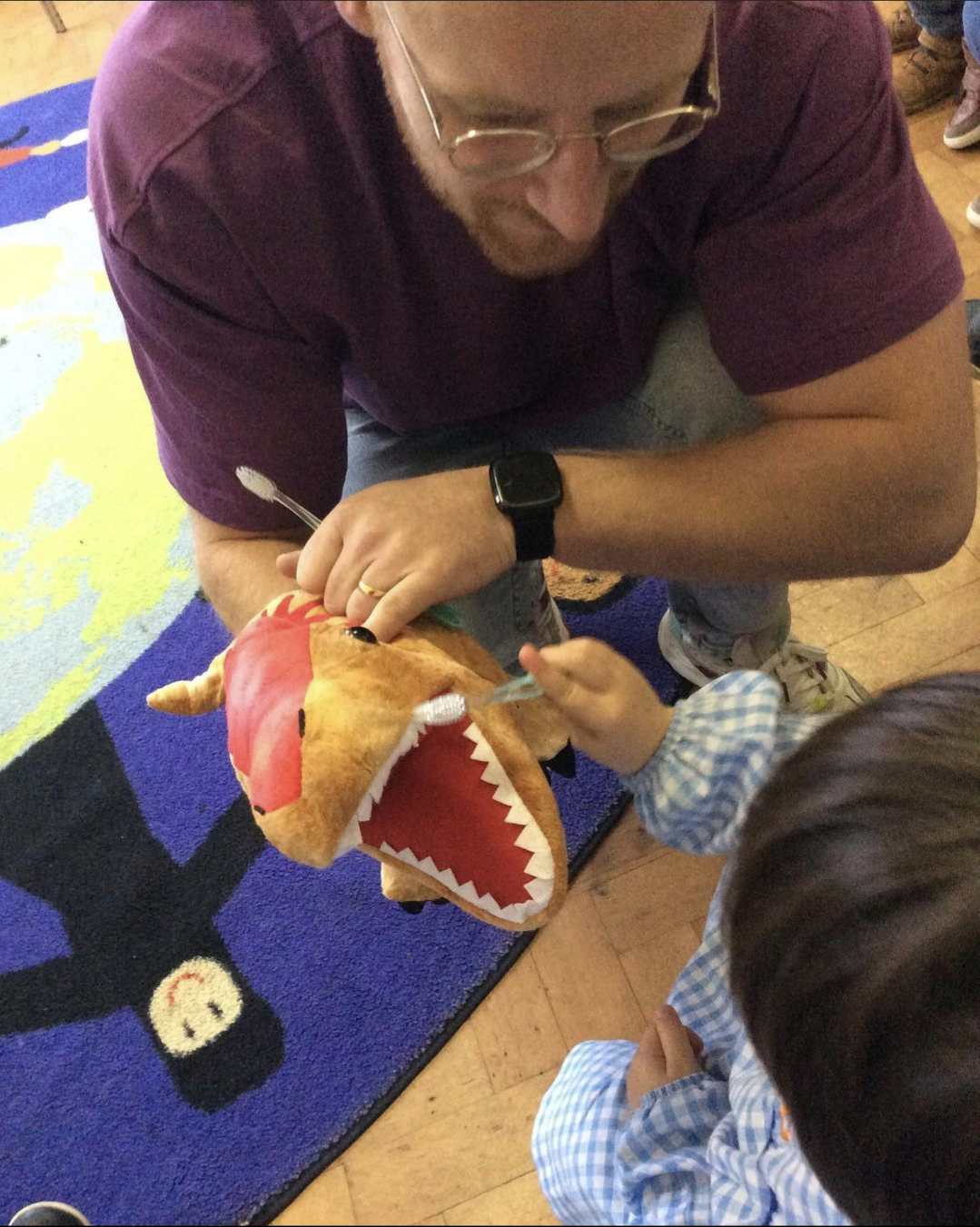
It’s been an absolute joy teaching the children. They’re always so enthusiastic and engaging and we have lots of fun learning how to brush on Danny the Dinosaur.
What surprised me is how much they know about teeth from such a young age, with children as young as four knowing that we have 20 baby and 32 adult teeth.
It’s also reassuring that they all understand that we need to brush our teeth in the morning and at night, and that sugar is bad for their teeth and which foods and drinks are high in sugar.
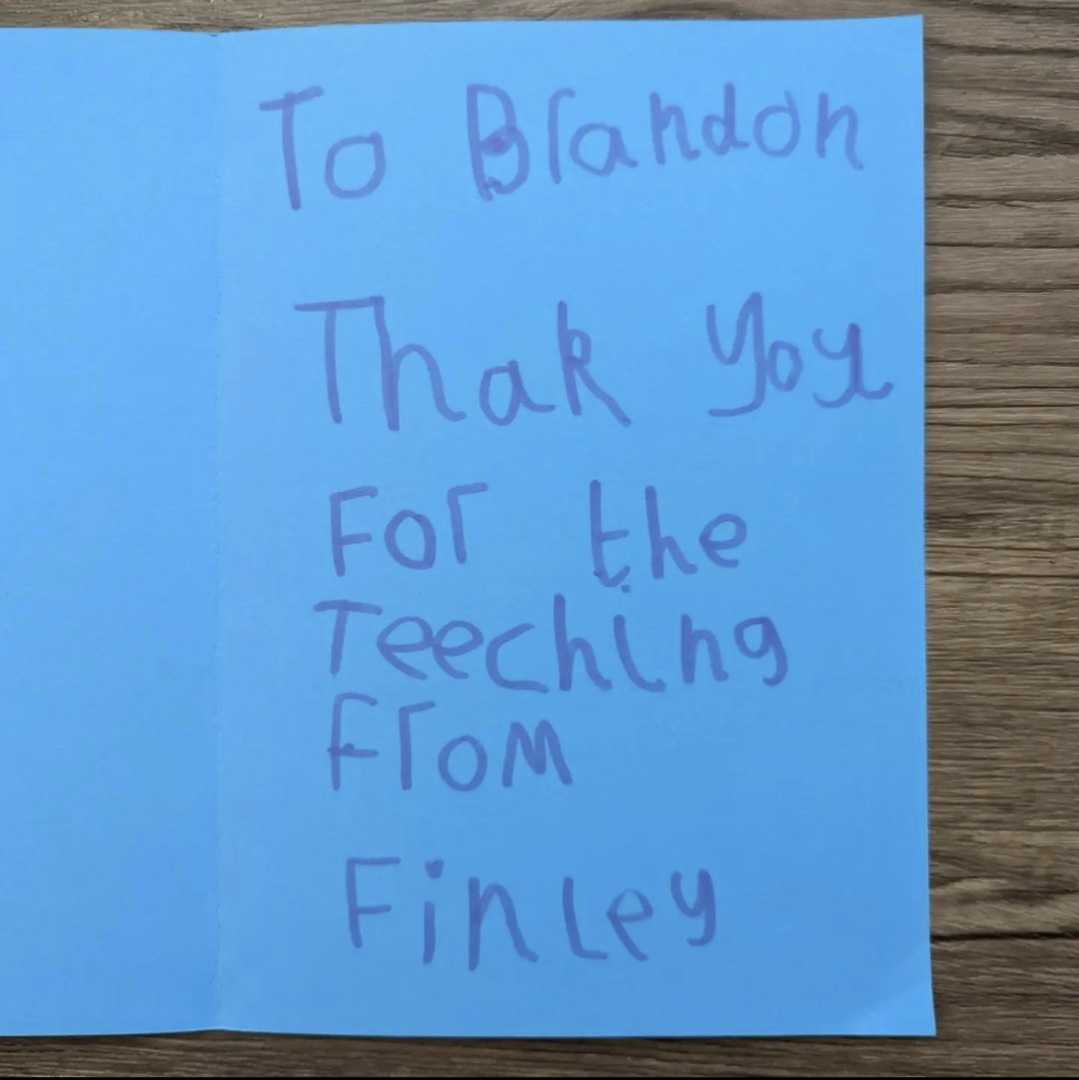
However, I have noticed that when I ask children how often they’re brushing, a lot only brush at night. They say mornings are ‘really busy’, which is concerning.
Having put dental health in the school curriculum, it’s clear that children know more than ever about why we need to and how to keep our teeth clean.
Perhaps now is the time to place focus on educating parents too, to ensure children brush morning and night to improve the dental health of the nation.
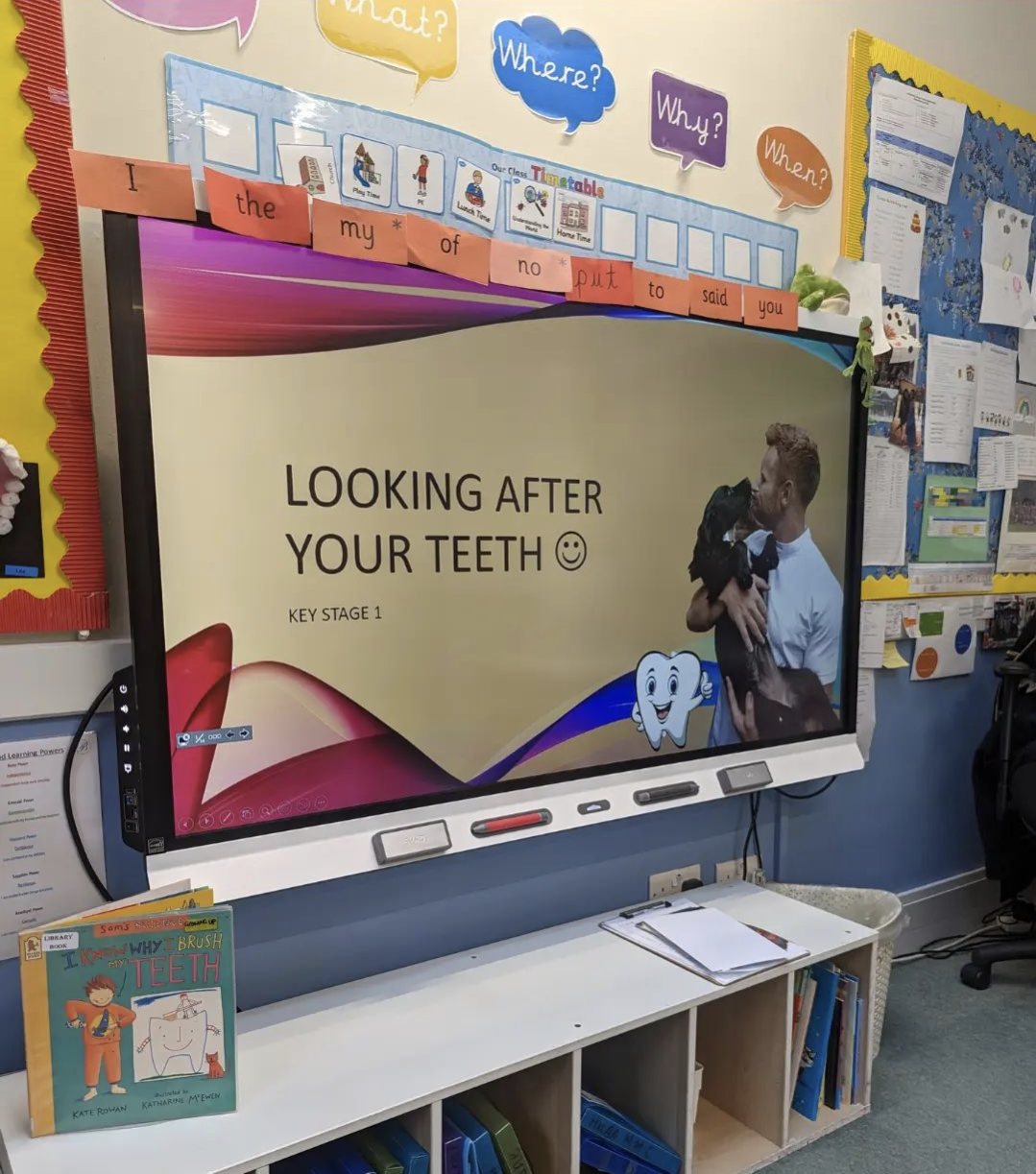
Emilia Forrester
My name is Emilia Forrester. I am a treatment coordinator at Thurmaston Dental Practice in Leicester.
I’m also a motivational speaker and have been a dental nurse for almost 17 years.
Our practice plays a very important role in our community. We attend local schools to educate the youngest population about their oral health.
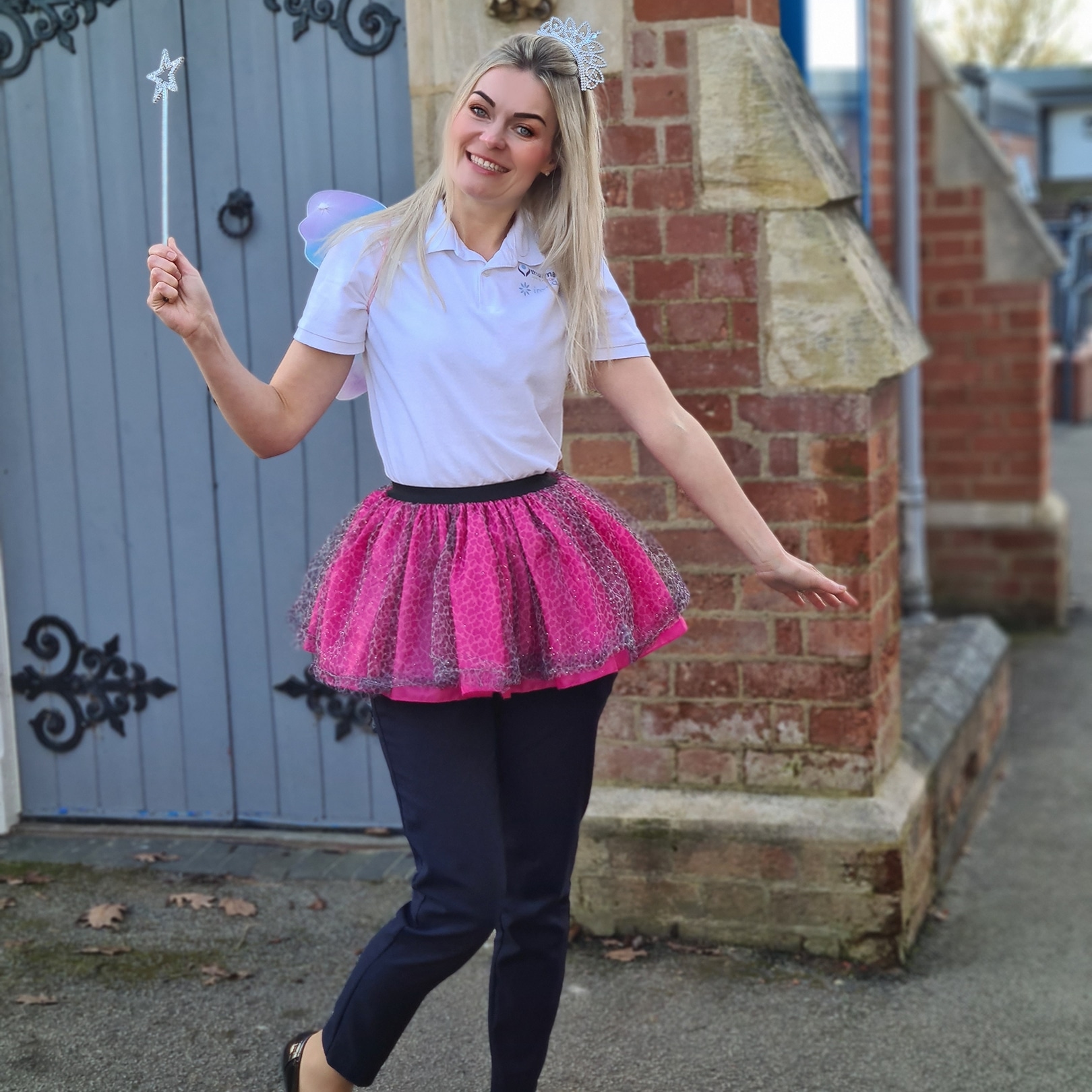
The decay rate in Leicester is extremely high.
We always provide key messages, simple for the children to understand and remember. We also cover healthy diets and bring lots of food examples so children can learn visually too.
I’ve had some incredible feedback from the school. Parents shared photos of their children taking toothbrushing seriously and telling them not to give them sugar as a snack as ‘fairy’ said it is not good for their teeth.
As you can see, I always dress up as a fairy. I have a magic wand and tiara – the children love it!
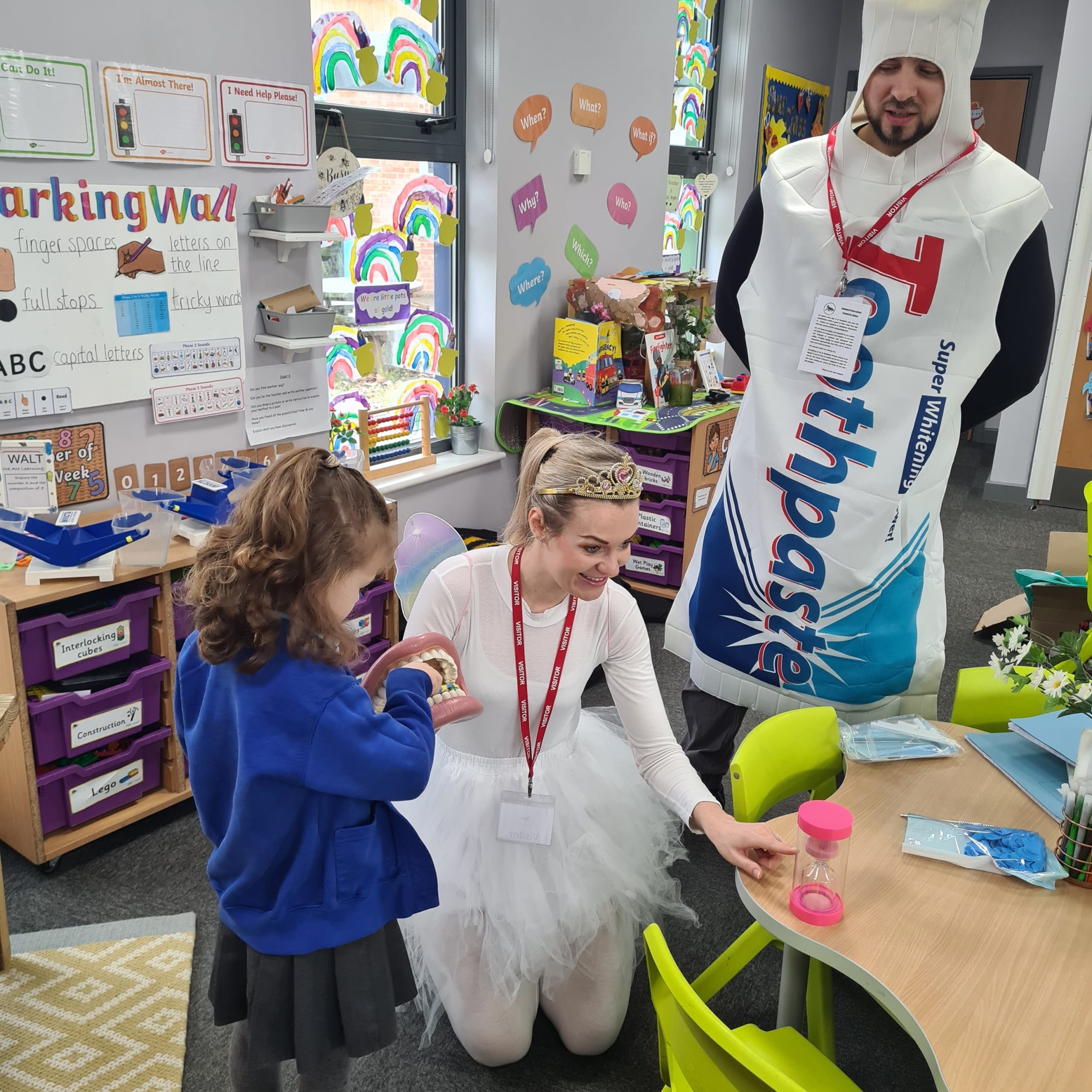
Leanne Ridley
Over the last three years, it has been almost impossible to have access to a routine dentist in the area of Cumbria where I live.
Things are getting slightly better and some practices are taking on new private patients. But virtually no NHS places are available, and have not been for a long time.
This means that if you have had a baby in the last three years, they are more than likely to have never visited a dentist.
In addition, the parents have not had any oral health advice, which isn’t a good start to their children’s oral health journey – through no fault of their own.
As well as this, the prices of almost everything have risen – especially food – making it very difficult for families to make good choices and provide fresh fruits and vegetables for a healthy diet.
It seems to be that sugary, higher fat foods are cheaper, which will be more appealing in the struggles of everyday life.
Knowledge is a key factor in education, so I am trying my hardest to promote good oral health from an early age.
Some of the things I am doing involve:
- Visiting schools, nurseries, playgroups and our local library, providing oral health education in a fun and interactive way
- Volunteering for Dentaid’s Brightbites scheme. In 2022, I delivered 30 educational presentations from ages zero-10, visiting 1,032 children. So far this year, I have visited three different settings and have many more planned. All children receive a toothbrush, toothpaste and information for their parents/carers, thanks to Dentaid’s help
- Designing an erosion poster for the children’s patient lounge in my workplace
- Organising local nurseries to attend my workplace for an education session and a check up. For some of them, this is their very first visit
- My Youtube channel with a home learning journey for any parents and teachers to access. It has tooth-related fun for all ages and is free to access via: www.youtube.com/@oralhygieneinstructionfork2145
- Social media pages with lots of fun interactive worksheets, activities and advice for all teachers, parents and caregivers to access free at any time. @dentalnurse_leanne
This is definitely my passion and I can’t wait to continue educating inside and outside of the dental practice.
Cat Edney
I have made it routine that I visit my children’s school twice a year to discuss oral health.
The sessions fit into the curriculum at key stage one and two, so both five-year-olds and nine-year-olds get a visit to discuss oral health.
The main subjects we focus on are prevention and the importance of visiting a dental professional on a regular basis.
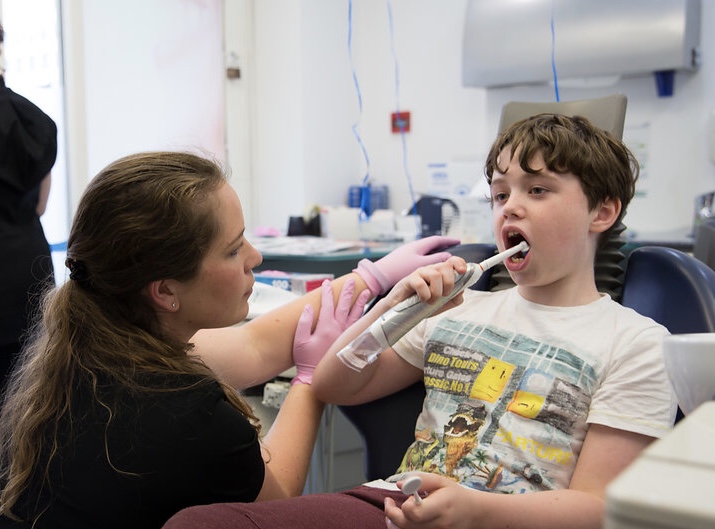
The five-year-old children often need support in understanding the importance of an oral health routine. A number of them will have never visited a dental practice before, so we show them a video of what it may look like – the chair, the light and some of the instruments.
We also play a dressing up game with masks, scrubs and mirrors, and discuss foods that can impact their oral health.
With older children, we discuss mixed dentitions, the importance of good home care and introduce accessory oral hygiene aids like interdental brushes and floss.
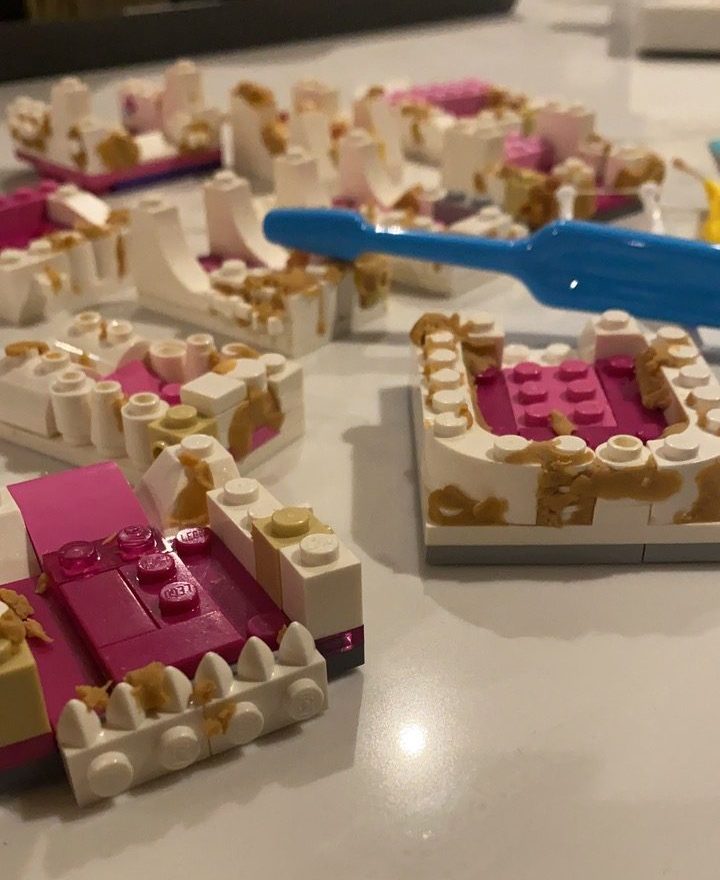
They have a go at cleaning dental models or Lego and they get a chance to discuss their own dental health. Many will have already experienced decay, an exfoliated tooth or have concerns about their future oral health (such as orthodontic care).
I feel like having a visible dental professional that they can feel comfortable discussing things with can support them in visiting their family dentist and create a solid foundation for them to build ongoing support into adulthood.
Poppy Irvine
Being a mixed dental practice means we see children on a daily basis. However, it is a daily reminder that over 50% of children do not have access to an NHS dentist.
Therefore, as a team, we decided to participate in outreach programmes with local primary schools.
While improvements have been made within schools – especially since the introduction of oral health teaching being made as part of the national curriculum – there are still barriers to overcome.
While our team is keen to promote oral health amongst children, we have to remember that we are asking clinicians to give up their time, whether it be personal or clinical.
Liaising with schools to find an appropriate time that suits everyone can be challenging. We overcome this by planning in advance and delivering the sessions over a lunchtime period.
In addition, all supplies are bought by the practice themselves and often need to be refreshed. This leads to further costs, whether it be printing, buying probes, supplying toothbrushes and toothpaste as a take home gift – due to the lack of children’s toothpaste samples available in our area.
‘A frustrating situation’
As well as this, many of the schools we visit are in low socio-economic areas where oral health is not a priority. It has continued to get worse due to the cost of living crisis.
While this is difficult to see as a dental professional, we try to help with the little resources we have. For example, ensuring each child has a toothbrush and toothpaste, as well as a take home leaflet on how they can look after their teeth.
As well as this, the NHS dental crisis combined with a cost of living crisis means some families simply don’t have the means to take care of their or their families’ oral health. It is a frustrating situation when you can see a child has decay but has no access to services.
All we can do is simply educate to try and prevent further decay and keep reinforcing good home care.
Sakina Syed
As an oral health expert, providing motivation and oral hygiene advice is integral to my role, both with adults and children.
For me, the awareness starts with nursery children, moving on through to primary school level, and it is quintessential to include parental education.
Acclimatisation of toothbrushing starts at home, but it can be a struggle for some parents. So reinforcing that in a nursery setting or at a children’s centre is essential for their personal developmental milestones, and for the prevention of oral diseases – vitally dental decay.
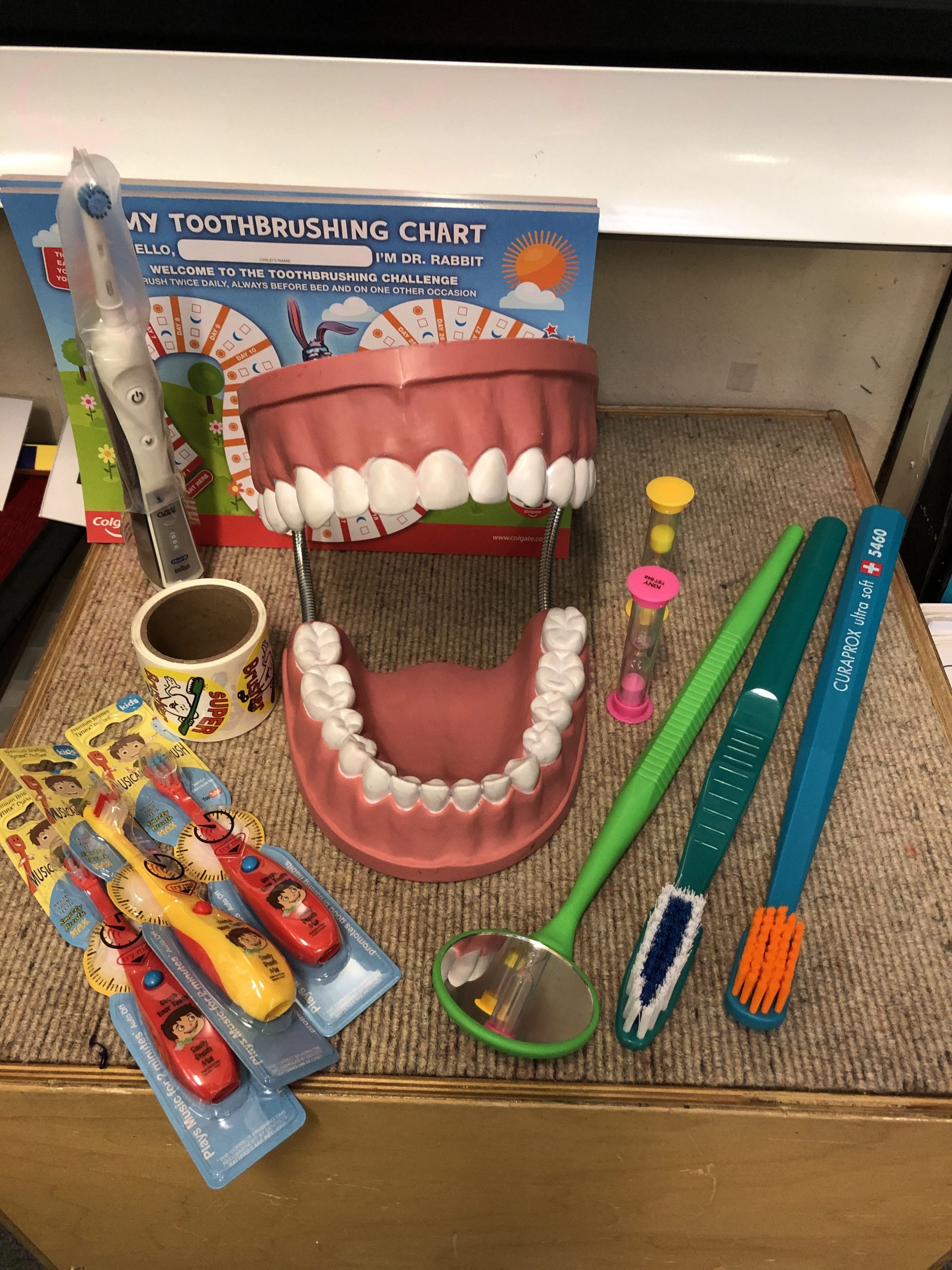
When I visit nurseries and primary schools, children thoroughly enjoy roleplaying scenarios. This is a fun learning style children can adopt in order to learn and then later recall a task.
I like to take masks, gloves and disclosing tablets if possible when visiting at primary school level and make the sessions as interactive as possible while adapting the teaching inline with the national curriculum key stages and guidance from the Oral Health Foundation.
Teaching a two-year-old child to brush their teeth does not mean they will have the dexterity to complete the task to our preferred level. But it can help to encourage and enforce the oral health message with parents or carers at home.
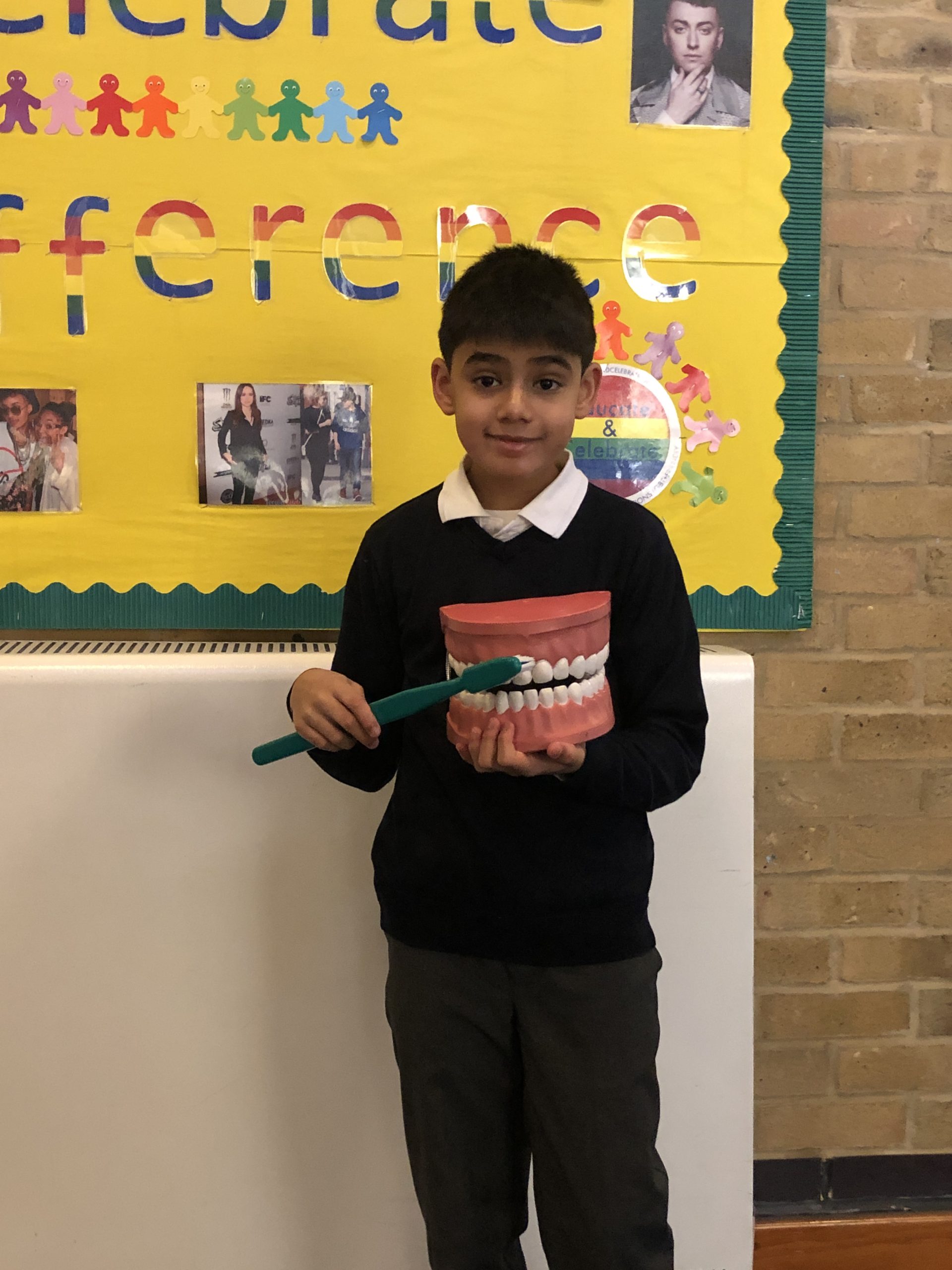
I have a strong affiliation with a local primary school and have found running parental workshops on oral hygiene and hidden sugars found in drinks and cereals to be an eye-opener to parents, as well as advice on bottle feeding.
This has been extremely welcomed and valued by parents at the school, and I feel this should be emphasised more from a dental professional at children’s health reviews.
Robiha Nazir
While at school, having healthier diets will help to limit cavities forming.
The best gift for any child is having control over their choices. We can help to navigate children to choose good habits early on by encouraging them to steer the ship.
Get them to choose what‘s in their pack lunch and have open conversations about diet. Being creative will help your child to ask questions and lead you to coach them to learn the why’s.
Get them thinking about things that would help the whole family to brush better and for longer. Make it fun!
Remember, children are like sponges. We can role play.
Waiting until bedtime isn’t advised as this can make it trickier to get your child to comply.
My go-to’s are timers, playing toothbrushing songs and brushing along at the same time.
You’ll find that learning the basics of creating good habits will pay off in time.
Follow Dentistry.co.uk on Instagram to keep up with all the latest dental news and trends.


